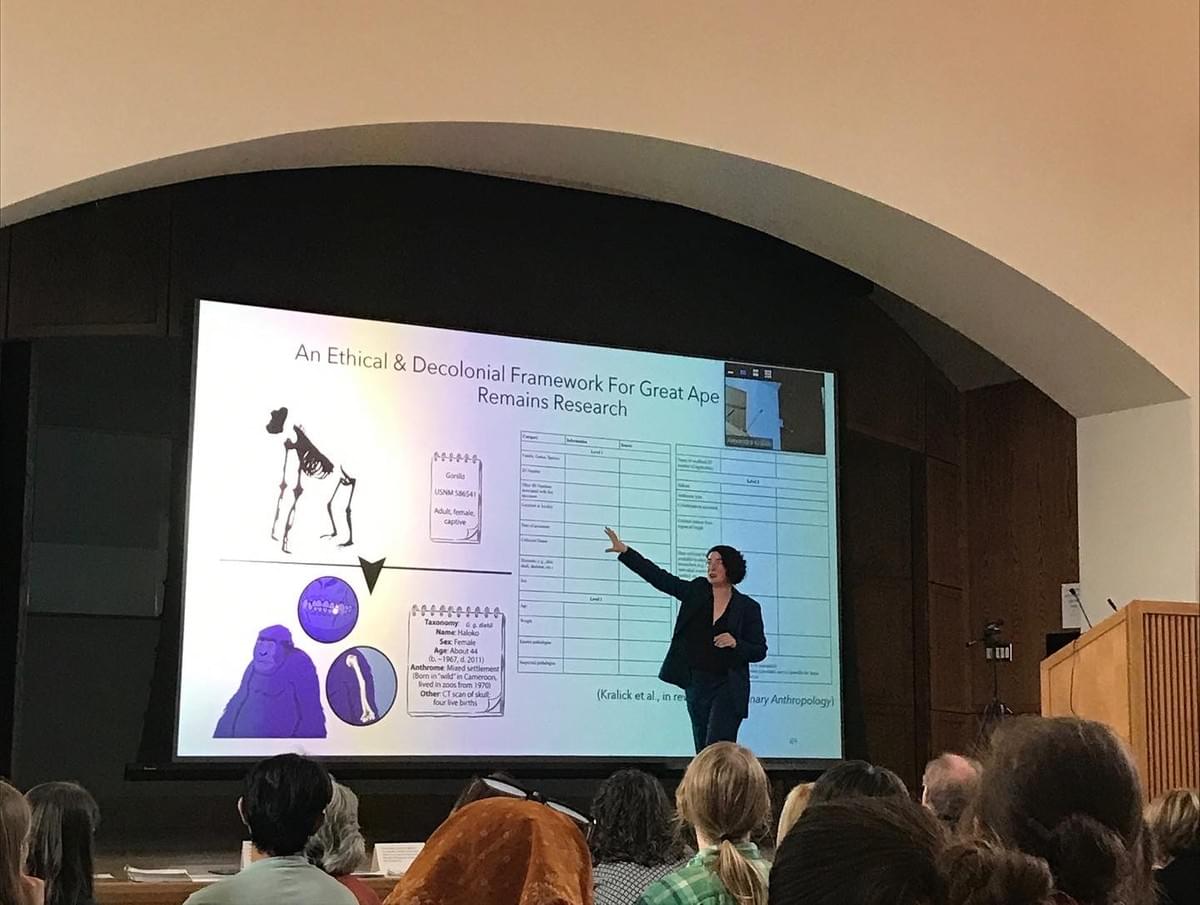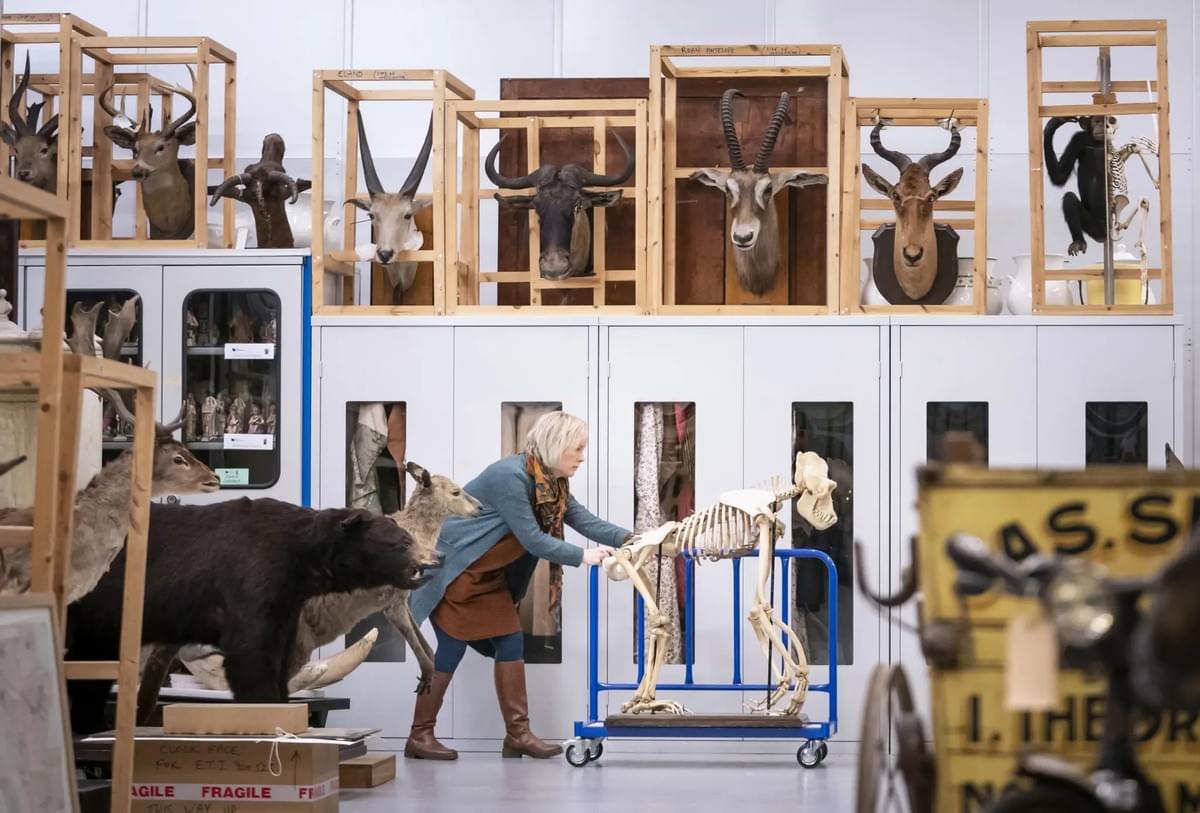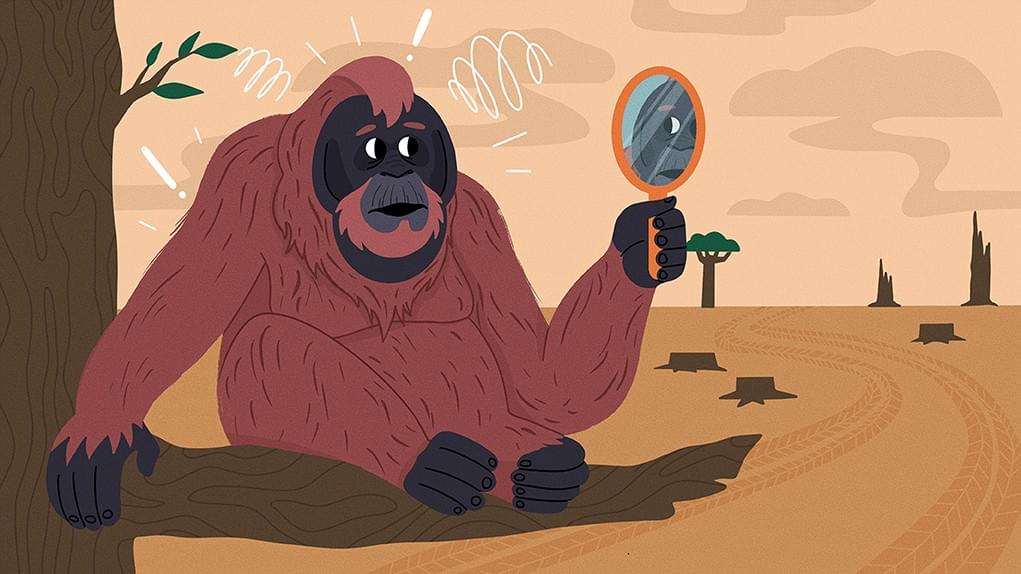
Alexandra E. Kralick, Ph.D.
An interdisciplinary biological anthropologist offering a creative, theoretically-engaged, innovative scientific inquiry into the growth and development and functional anatomy of within-sex variation in the ape skeleton.

Bio
Dr. Alexandra Kralick is a Postdoctoral Research Fellow at the University of Wisconsin–Madison. As a biological anthropologist with a background in critical science studies and four-field anthropology, her research examines within-sex variation in great ape biology.
Her work focuses on orangutan skeletal biology, with particular attention to within- and between-sex variation in life history and functional morphology. She developed an osteobiographic method for identifying flanging status in museum collections to better understand male bimaturism. Her upcoming Leakey Foundation-funded project at the Tuanan Orangutan Research Station connects skeletal biology with behavior.
Dr. Kralick earned her Ph.D. in Anthropology from the University of Pennsylvania in 2023, where her dissertation investigated orangutan skeletal development and variation. She previously held a postdoctoral fellowship at Harvard University and served as a Visiting Assistant Professor at Bryn Mawr College. She holds a B.S. in Biological Anthropology from The George Washington University, where she conducted research on gorilla dental development and wrist bone morphology.
Peer-Reviewed Publications
Alexandra E. Kralick, Babette S. Zemel, Clara Nolan, Phillip Lin, Matthew W. Tocheri. (2024). Relative leg-to-arm skeletal strength proportions in orangutans by species and sex. Journal of Human Evolution 188: 103496.
Specimens as individuals: Four interventions and recommendations for great ape skeletal collections research and curation
Alexandra E. Kralick, Stephanie Canington, Andrea Eller, and Kate McGrath.Specimens as Individuals: Four interventions and recommendations for great ape skeletal collections research and curation. (2023) Evolutionary Anthropology.1:20. doi: 10.1002/evan.22002
Beyond Dimorphism: Body Size Variation among Adult Orangutans is not Dichotomous by Sex
Open Access Publication available here
Alexandra E Kralick, Caitlin A O'Connell, Meredith L Bastian, Morgan K Hoke, Babette S Zemel, Theodore G Schurr, Matthew W Tocheri. (2023). Beyond Dimorphism: Body Size Variation among Adult Orangutans is not Dichotomous by Sex, Integrative and Comparative Biology, icad015, https://doi.org/10.1093/icb/icad015
Sex and Biology: Broader Impacts Beyond the Binary
Sam Sharpe, Andrew P.Anderson, Idelle Cooper, Alexandra E. Kralick, Timothy James, HansLindahl, Sara Lipshutz, J. F. McLaughlin, Banu Subramaniam, Alicia Roth Weigel,A. Kelsey Lewis. Sex and Biology: Broader Impacts Beyond the Binary. Integrative and Comparative Biology. 1:8. doi: 10.1093/icb/icad113
More severe stress markers in the teeth of flanged versus unflanged orangutans (Pongo spp.)
Alexandra E. Kralick and Kate McGrath. (2021). More severe stress markersin the teeth of flanged versus unflanged orangutans (Pongo spp.). American Journal of Physical Anthropology. 1:13. DOI: 10.1002/ajpa.24387
Faster growth corresponds with shallower linear hypoplastic defects in great ape canines
McGrath, K., Reid, D.J., Guatelli-Steinberg, D., Arbenz-Smith, K., El Zaatari, S., Fatica, L.M., Kralick, A.E., Cranfield, M.R., Stoinski, T.S., Bromage, T.G. and Mudakikwa, A., 2019. Faster growth corresponds with shallower linear hypoplastic defects in great ape canines. Journal of Human Evolution, 137, p.102691
Evolutionary perspectives on the developing skeleton and implications for lifelong health
Open access Publication available here
Alexandra E. Kralick and Babette S. Zemel. (2020). Evolutionary perspectives on the developing skeleton and implications for lifelong health. Frontiers in Endocrinology. 11: 99. doi: 10.3389/fendo.2020.00099
A radiographic study of permanent molar development in wild Virunga mountain gorillas of known chronological age from Rwanda
Alexandra E. Kralick, M. Loring Burgess, Halszka Golwacka, Keely Arbenz-Smith, Kate McGrath, Christopher B. Ruff, King Chan, Michael R. Cranfield, Tara S. Stoinski, Timothy G. Bromage, Antoine Mudakikwa, Shannon C. McFarlin. (2017). A radiographic study of permanent molar development in wild Virunga mountain gorillas of known chronological age from Rwanda. American Journal of Physical Anthropology. 163(1):129-147.
Public Science Communication
"Habitat Destruction Is Affecting The Facial Features Of Orangutans"
Frontiers for Young Minds is an open access scientific journal that brings the latest research in real time to school kids
Dr. Kralick offers a variety of courses.
The courses she has taught as instructor of record at Byrn Mawr College and University of Pennsylvania inlclude:
- Introduction to Human Evolution
- Introduction to Biological Anthropology and Anthropological Archaeology Laboratory
- The Living Primates: Bones Biology, and Behavior
- Gender and Human Evolution
- Sex, Gender, Biology, and Culture
- Biocultural Anthropology of Sex and Gender
- Myths of Human Nature
© 2022 by Alexandra Kralick
Photos are not for reproduction



























